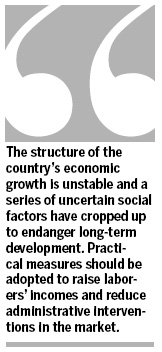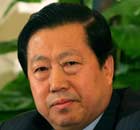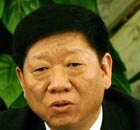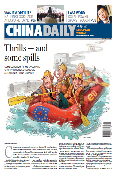Urbanization, income gulf may put nation in economic peril
Updated: 2010-03-03 07:40
By Yi Xianrong (China Daily)
Dual sessions must also address soaring housing prices
With the annual session of the Chinese People's Political Consultative Conference (CPPCC) National Committee opening today and the session of the National People's Congress (NPC) approaching, people online have grown more interested in the potential topics at the two sessions, from the fight against corruption and building a clean government, to improving the country's social security system, distribution of income, and measures to curtail soaring home prices.
Due to the increasing income gap between the rich and poor, the country's aims to promote redistribution of wealth and curb the intolerably high housing prices will most likely top the agendas of the two sessions.
| ||||
Cleaning up corruption and ensuring a clean government can only be advanced through the country's long-term political reform and its effective measures to restrain the unbridled power of officials. This is common sense. Similarly, improving the country's social security system, which is closely related to household interests, is not expected to be resolved within a short period.

Amid the global recession, ensuring steady economic growth is expected to be the focus of this year's Government Work Report, which will be delivered by Premier Wen Jiabao to NPC deputies for their review to start the sessions. The central government has vowed on many occasions to keep its macroeconomic policy unchanged, take practical measures to steady the country's imbalanced economic structure and further change its economic growth model to ensure sustainable growth.
To this end, concrete, workable measures have been promised to change the country's previous excessive dependence on investment and exports and to boost consumer demands as a means of propping up economic growth. To facilitate this much-needed change, the country should adopt binding measures to improve the incomes of citizens in a bid to narrow the expanding wealth gap.
The current low consumption level of the majority of Chinese people is mainly attributed to the divide in the country's wealth distribution and the lingering existence of unreasonable government policies, power of the administration in overriding market rules, excessive government interventions into the country's resources and an unreasonable wealth distribution model.
China's uneven distribution of wealth has hampered the spending power of Chinese people. The structure of the country's economic growth is unstable and a series of uncertain social factors have cropped up to endanger long-term development and social stability.
To reverse this tendency, practical measures should be adopted to raise the level of laborers' incomes and reduce administrative interventions in the market. The government should also try to reduce its involvement in the economy and turn to a democratic and transparent decision-making process to minimize the existence of vested departmental interests.
The steps to accelerate the country's urbanization, a process that will help redistribute people's incomes, is also expected to become a contentious economic topic at the upcoming sessions.
The agendas of this year's two sessions are expected to be dominated by the issue of housing prices. Soaring home prices have not only hurt Chinese urban residents, but have posed a prominent threat to the country's financial stability and security. It has also arrested the country's urbanization process and its effort to promote change in the country's economic growth model.
In the past few years, houses have been looked upon as an investment tool instead of as a residence. Fueled by investment and speculation, ever-ascending home prices have seriously thinned out the spending ability of citizens. The real estate market has also developed into a main tool by some to accumulate and transfer social wealth, a tendency that is very detrimental to the majority of the people. This, if not changed, will seriously harm people's interests and give rise to negativity in society.
Stopping home prices from further climbing is thus expected to be a focus at the forthcoming two sessions, in terms of either the government's efforts to fulfill its oft-reiterated commitments to improve people's livelihood, or its efforts to push forward the economic development strategy and maintain the country's economic and financial security.
The author is a researcher with the Institute of Finance and Banking under the Chinese Academy of Social Sciences.
(China Daily 03/03/2010 page8)
Paper's Digest

Chinese jet takes on Big 2
First large commercial plane set to ride on demand for aircraft as economy grows.
Super-CPU only for domestic eyes
Specials

Gaining ground
Doing business in china for westerners has come a long way, Peter batey says.

Safeguarding environment a priority
China continues to face mounting pressure to curb environmental degradation, despite progress in reducing pollution over the last five years, the environmental protection minister warned.

Employment to remain a continuing challenge
China's top labor official said the country will face a tough employment situation in the next five years.




